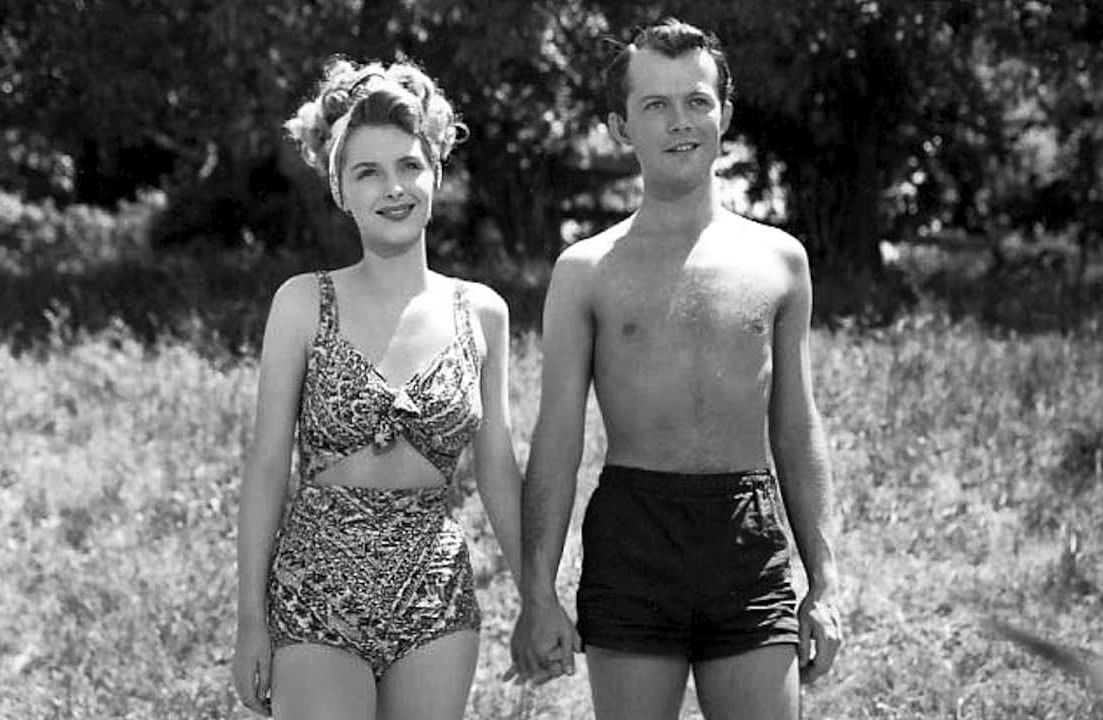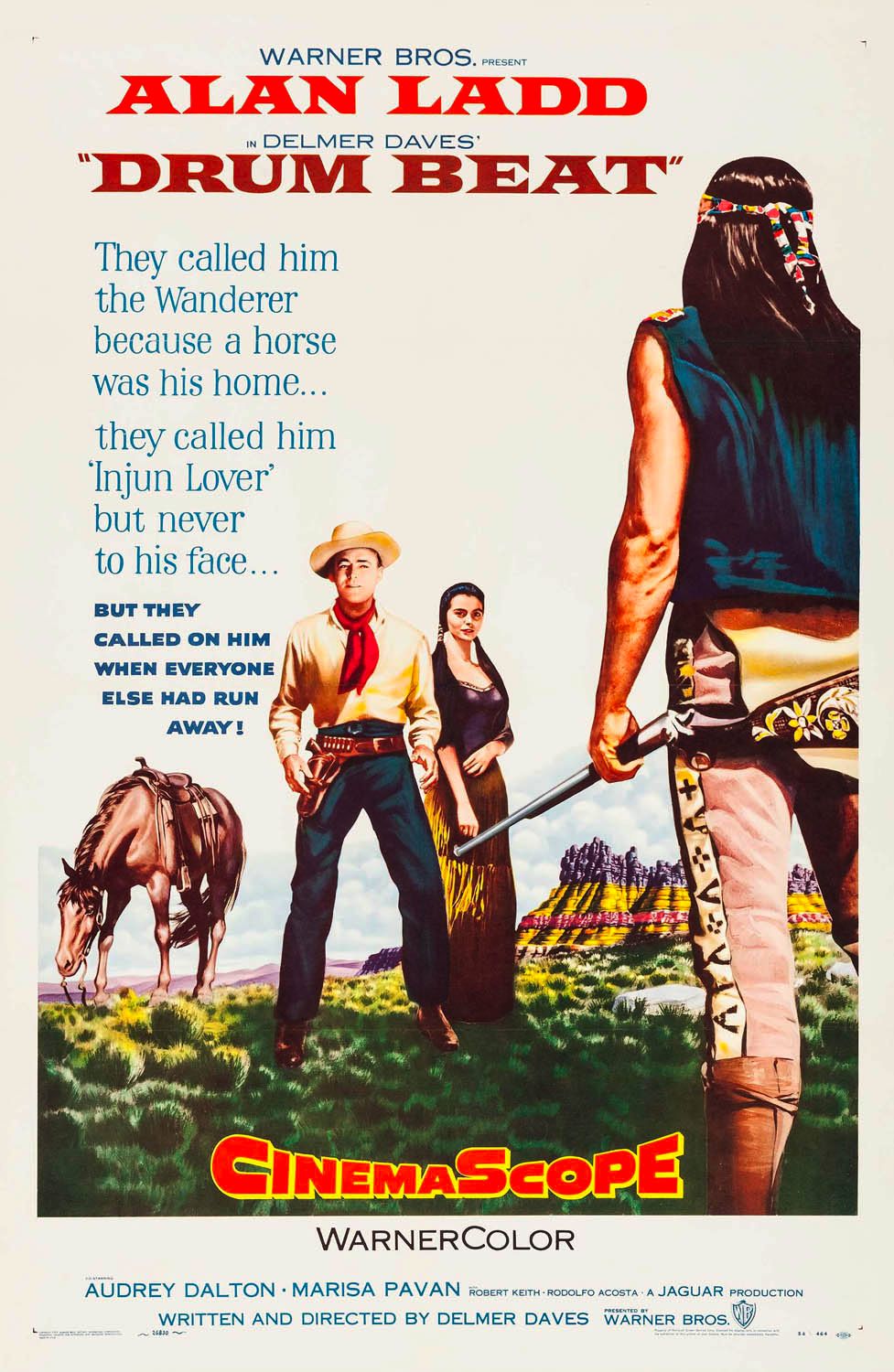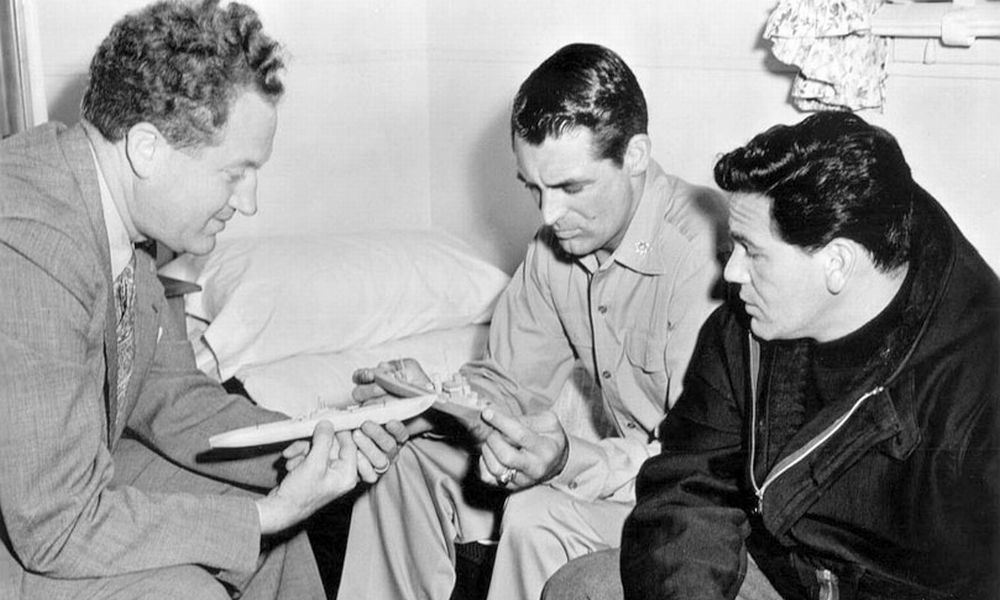"Although writer-director Delmer Daves turned his hand to almost everything, only one or two films of his have passed into the canon… Daves's high points generally reflected industry fashion. With hindsight, he epitomizes the classical Hollywood workhorse pro." - Richard Armstrong (The Rough Guide to Film, 2007)
Delmer Daves
Director / Screenwriter / Producer
(1904-1977) Born July 24, San Francisco, California, USA
(1904-1977) Born July 24, San Francisco, California, USA
Key Production Country: USA
Key Genres: Western, Drama, War, War Drama, Romantic Drama, Melodrama, Family Drama, Traditional Western, Thriller, Mystery, Psychological Western
Key Collaborators: Leo K. Kuter (Production Designer), Charles Lawton Jr. (Cinematographer), Max Steiner (Composer), Franz Waxman (Composer), Jerry Wald (Producer), Owen Marks (Editor), Glenn Ford (Leading Actor), Felicia Farr (Leading Actress), Albert Maltz (Screenwriter), Al Clark (Editor), John Ridgely (Leading Character Actor), Lyle Wheeler (Production Designer)
Key Genres: Western, Drama, War, War Drama, Romantic Drama, Melodrama, Family Drama, Traditional Western, Thriller, Mystery, Psychological Western
Key Collaborators: Leo K. Kuter (Production Designer), Charles Lawton Jr. (Cinematographer), Max Steiner (Composer), Franz Waxman (Composer), Jerry Wald (Producer), Owen Marks (Editor), Glenn Ford (Leading Actor), Felicia Farr (Leading Actress), Albert Maltz (Screenwriter), Al Clark (Editor), John Ridgely (Leading Character Actor), Lyle Wheeler (Production Designer)
“His films are extremely variable in quality, though often humanistic. He brought his feeling for dramatic plot to thrillers (Dark Passage) and especially to several notable westerns: Broken Arrow, The Last Wagon, 3:10 to Yuma, Cowboy, and The Hanging Tree.” - Georges Sadoul (Dictionary of Film Makers, 1972)
"Daves was a meticulous craftsman and a showy stylist with a penchant for complicated crane shots. Although variable in thematic quality, his films were always interesting to watch and were often imbued with humanity and sympathetic understanding for characters in conflict with their environment. Especially effective were his Westerns, some of which show the influence of the period of his youth spent living among Hopi and Navajo Indians." - The Film Encyclopedia, 2012

The Red House (1947)
"Westerns were Daves' forte. His series of oaters in the 1950s are fraught with modern themes such as racism, written law vs. moral law, man's responsibility to his fellow man, all of which are infused into colorful, tense, and often bowstring-tight productions (Broken Arrow, 50; 3:10 to Yuma, 57). Daves' other work is highly erratic in quality." - William R. Meyer (The Film Buff's Catalog, 1978)
"No American director is more alien to the cult of machismo, to cynical manipulation. More often than not, women are the driving force, or the filmmaker’s mouthpiece; they challenge the film's heroes, educate them in matters of the heart, without any hypocrisy or puritanism. The emotional power and lyricism with which Daves endows his female characters make him a worthy successor to Borzage. Indeed, if one must compare Daves with another director, it should be Borzage, or McCarey (for whom he wrote the splendid Love Affair), especially the McCarey of Make Way for Tomorrow, rather than with Mann." - Bertrand Tavernier (Film Comment, 2003)
"Accomplished visual stylist who often wrote his own imaginative, and genre-defying, screenplays; his films are always technically proficient but sometimes lack substance." - The Virgin International Encyclopedia of Film, 1992
"Straightforward, unpretentious director of Hollywood melodramas, Westerns and war films… Although Daves had a strong visual sense, and knew how and where to place the camera for best effect, he never forgot that he was a storyteller first, and all his films have direct, uncomplicated narratives." - Leonard Maltin's Movie Encyclopedia, 1995
"If you have no kind thoughts for the authoritative absurdities of Dark Passage, The Red House, A Summer Place, Rome Adventure and Youngblood Hawke, read no further. Delmer Daves is the property of those who can enjoy stylistic conviction in an intellectual vacuum. The movies of Delmer Daves are fun of a very special kind. Call it Camp or call it Corn. The director does not so much transcend his material as mingle with it." - Andrew Sarris (The American Cinema, 1968)
“Recognised for his versatility, Delmer Daves served a twenty-year apprenticeship as prop boy, scenarist and scriptwriter before becoming a director… Whether working with other scriptwriters like Albert Maltz (Pride of the Marines) or Richard Brooks (To the Victor), or working from his own scripts, as in The Red House and Dark Passage, Daves was a solid and dependable director. But he rarely rose above the quality of his original material.” - Joel W. Finler (The Movie Directors Story, 1985)
Selected Filmography
{{row.titlelong}}
GF Greatest Films ranking (★ Top 1000 ● Top 2500)
T TSPDT N 1,000 Noir Films
R Jonathan Rosenbaum S Martin Scorsese
T TSPDT N 1,000 Noir Films
R Jonathan Rosenbaum S Martin Scorsese
"Fan Club"
These film critics/filmmakers have, on multiple occasions, selected this director’s work within film ballots/lists that they have submitted.
These film critics/filmmakers have, on multiple occasions, selected this director’s work within film ballots/lists that they have submitted.


